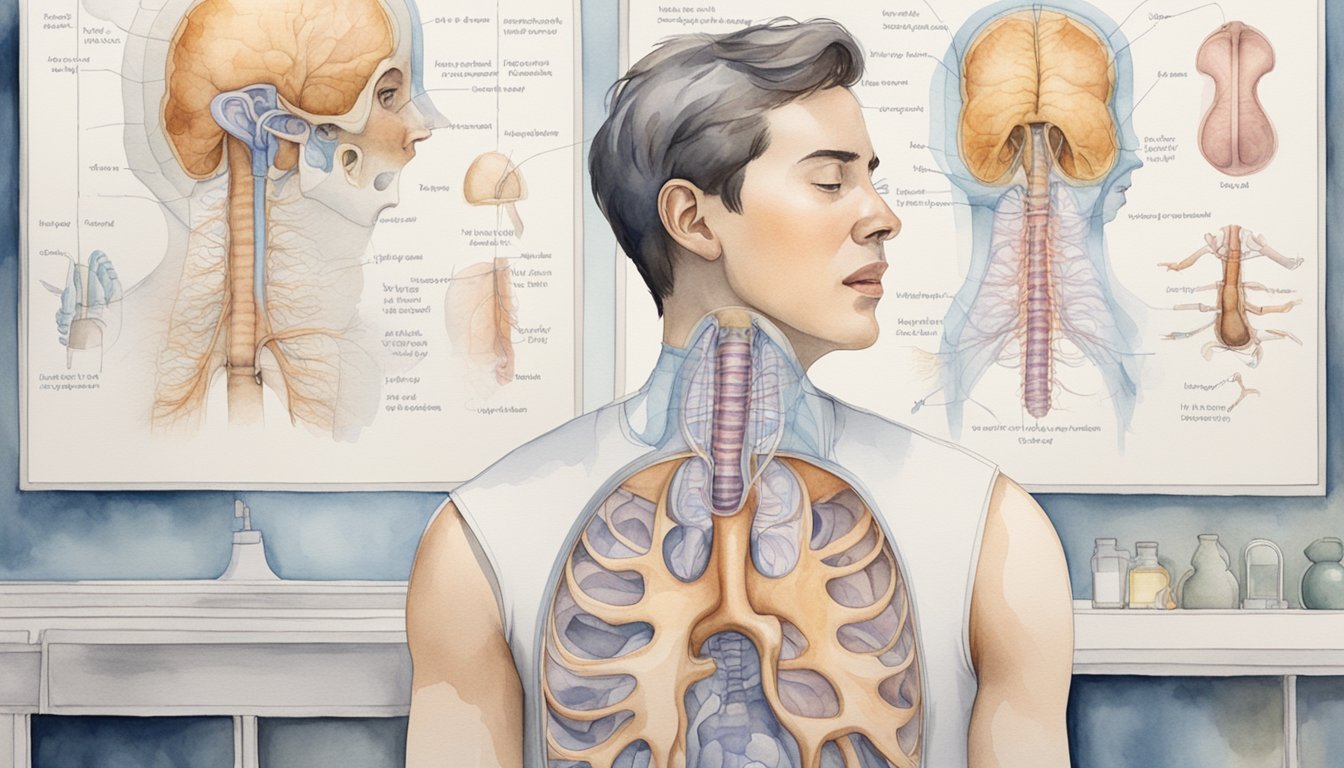Charles Osborne’s Life and Hiccup Saga
Early Life and the Onset of Hiccups
Charles Osborne (1894-1991) was an ordinary American farmer until he found himself experiencing one of the most unusual cases of hiccups, lasting for a staggering 68 years. In 1922, when Osborne was working as a butcher and slaughtering a hog, he started hiccuping and continued to do so roughly 430 million times until the hiccups finally stopped in 1990. The onset of hiccups was triggered by accidentally bursting a blood vessel in his brain stem, resulting in damage to his diaphragm.
Medical Examinations and Public Attention
Due to the uniqueness of his condition, Charles Osborne attracted public attention, with his story even being featured in Robert Ripley’s “Believe It or Not.” During his hiccup saga, Osborne underwent numerous medical examinations to understand the cause of his involuntary hiccups and potentially find a cure. However, none of the treatments and remedies worked for him. His extraordinary case earned him a place in the Guinness World Records as the individual with the longest recorded case of hiccups.
Living with Hiccups and Pursuing Normalcy
Despite living with a constant hiccup, Charles Osborne managed to lead a relatively normal life. He continued working on his farm and even got married and raised a family. Although his hiccups made it hard to eat or sleep, Osborne gradually adapted to them by training his body to consume his meals quickly during the brief moment between hiccups. His perseverance and adaptability in the face of such an unusual challenge were truly inspiring.
The End of the Hiccup Marathon and Legacy
The 68-year long hiccup marathon finally came to an end in 1990, just a year before Charles Osborne’s death. Though he has passed away, his remarkable story of endurance and resilience continues to capture people’s imaginations and serves as a testament to the human spirit’s ability to adapt and overcome adversity. Charles Osborne and his hiccup saga remain part of the scientific history as an unforgettable example of a rare and perplexing medical phenomenon.
Understanding Hiccups and Medical Insights

The Science Behind Hiccups
Hiccups, or singultus, are involuntary contractions of the diaphragm muscle. They result from a quick and unexpected closure of the vocal cords, producing the characteristic sound we recognize as a hiccup. While hiccups can be both annoying and inconvenient, they usually don’t pose a serious health concern. Hiccups are caused by a variety of factors, including eating too quickly, consuming large amounts of carbonated beverages, and experiencing stress or excitement. In some cases, however, hiccups may indicate underlying health issues such as central nervous system disorders or brain tumors.
Remedies and Treatments for Hiccups
There are numerous home remedies and treatments available for hiccups, with varying degrees of effectiveness. Many people claim that holding one’s breath or drinking a glass of water upside down can help cure hiccups. Other popular home remedies include consuming a teaspoon of sugar, inhaling and exhaling into a paper bag, and performing a slow, controlled breathing technique. However, these remedies might not work for chronic, nonstop hiccups that last over 48 hours.
If home remedies fail to provide relief, doctors at institutions like the Mayo Clinic suggest seeking medical attention, as chronic hiccups could indicate a more serious health issue. In certain cases, medication, hormone therapy, surgery, or even weight loss interventions may be necessary to treat the underlying cause.
Notable Cases and Research Developments
One of the most fascinating cases of prolonged hiccups in history is that of Charles Osborne, who experienced nonstop hiccups for 68 years. Osborne’s case remains the longest recorded episode of hiccups in the Guinness World Records. Despite extensive attempts to find a cure, he never found a solution to stop his hiccups permanently.
In recent years, new research and developments have emerged in the world of hiccup treatment. A unique device called HiccAway claims to instantly stop hiccups by using a specially designed straw that stimulates the diaphragm and activates specific nerves responsible for hiccups. Conflicting studies on the effectiveness of this device and its scientific basis prove that hiccups continue to be an intriguing subject for the medical community.

